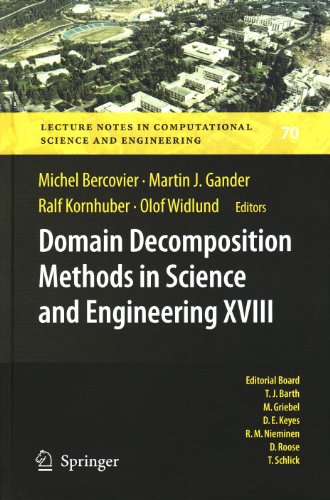

Most ebook files are in PDF format, so you can easily read them using various software such as Foxit Reader or directly on the Google Chrome browser.
Some ebook files are released by publishers in other formats such as .awz, .mobi, .epub, .fb2, etc. You may need to install specific software to read these formats on mobile/PC, such as Calibre.
Please read the tutorial at this link: https://ebookbell.com/faq
We offer FREE conversion to the popular formats you request; however, this may take some time. Therefore, right after payment, please email us, and we will try to provide the service as quickly as possible.
For some exceptional file formats or broken links (if any), please refrain from opening any disputes. Instead, email us first, and we will try to assist within a maximum of 6 hours.
EbookBell Team

0.0
0 reviewsth This volume contains a selection of 41 refereed papers presented at the 18 International Conference of Domain Decomposition Methods hosted by the School of ComputerScience and Engineering(CSE) of the Hebrew Universityof Jerusalem, Israel, January 12–17, 2008. 1 Background of the Conference Series The International Conference on Domain Decomposition Methods has been held in twelve countries throughout Asia, Europe, the Middle East, and North America, beginning in Paris in 1987. Originally held annually, it is now spaced at roughly 18-month intervals. A complete list of past meetings appears below. The principal technical content of the conference has always been mathematical, but the principal motivation has been to make ef cient use of distributed memory computers for complex applications arising in science and engineering. The leading 15 such computers, at the “petascale” characterized by 10 oating point operations per second of processing power and as many Bytes of application-addressablem- ory, now marshal more than 200,000 independentprocessor cores, and systems with many millions of cores are expected soon. There is essentially no alternative to - main decomposition as a stratagem for parallelization at such scales. Contributions from mathematicians, computerscientists, engineers,and scientists are together n- essary in addressing the challenge of scale, and all are important to this conference.